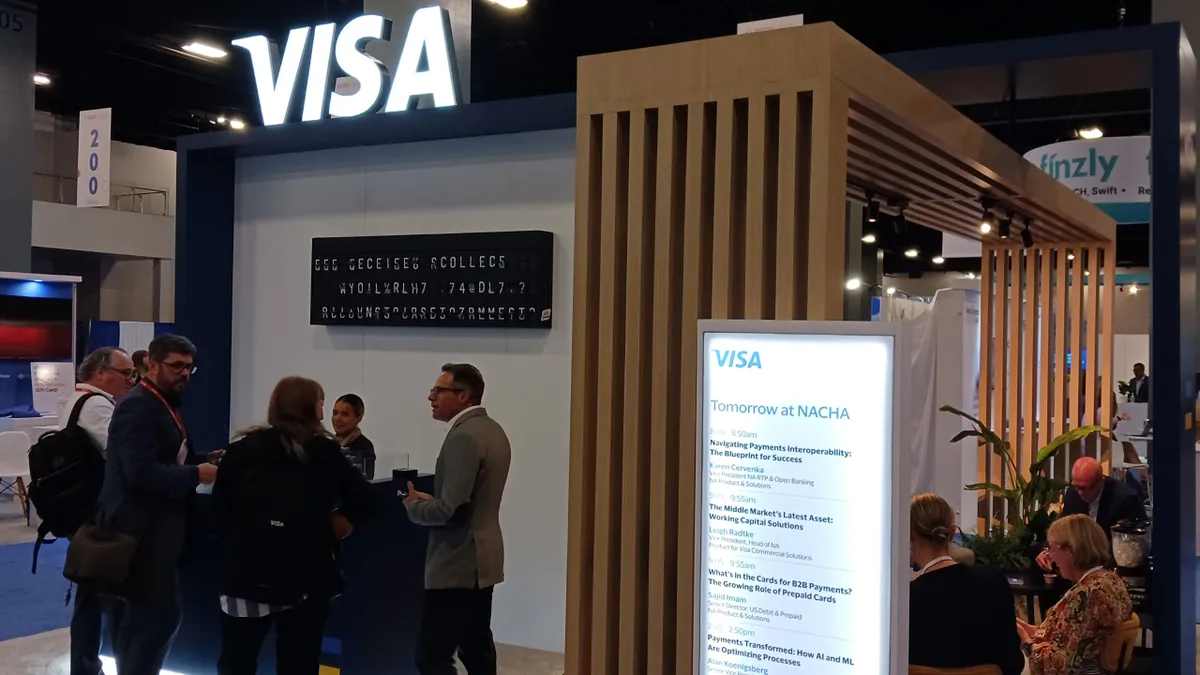UPDATE: June 14, 2022:
Block shareholders on Tuesday shot down the proposal to eliminate super-voting shares.
The non-binding proposal, submitted by shareholder NorthStar Asset Management Inc. Funded Pension Plan, did not receive enough support to pass during the San Francisco-based company’s annual meeting.
During the question and answer portion of the meeting, Block’s Chief Financial Officer Amrita Ahuja was asked if Block will commit to offering opportunities “for deeper conversations” with its institutional shareholder base, including hosting an ESG investor discussion in the next year, given that “the board has no immediate plans to shift to a one share-one vote structure.”
Ahuja said Block’s board believes “our governance practices help the board and management focus on creating value over the long term, and develop and execute Block’s strategic mission.”
Regular shareholder communication is a “top priority for us,” she stressed, citing the company’s quarterly earnings calls, its recent investor day and a meeting held with some investors last year on ESG initiatives.
“We continue to welcome shareholder engagement on all topics,” including on ESG, Ahuja said.
--------
A Block shareholder has proposed the elimination of super-voting shares and called out CEO Jack Dorsey’s “growing fascination” with cryptocurrency.
The non-binding proposal, submitted by shareholder NorthStar Asset Management Inc. Funded Pension Plan, will be put to a shareholder vote at Block’s annual meeting June 14. The same shareholder proposed the same change at the digital payments company’s 2021 meeting, when it garnered support from about 20% of votes cast, per Institutional Shareholder Services.
The shareholder proposed revamping the company’s capital structure so that all outstanding stock would have one vote per share, according to San Francisco-based Block’s proxy filing. That would eliminate the current dual-class setup in which each class B share confers 10 times the voting rights of a class A share. Under the existing structure, Block’s billionaire cofounders, Dorsey and Jim McKelvey, own less than 11% of shares to “but control over 48% of the shareholder vote,” the shareholder proposal noted.
“These facts raise concerns that the interests of public shareholders may be subordinated to those of the cofounders,” the proposal said. The shareholder recommended the change be phased in over seven years, another “timeframe justified by the board.”
In a response, Square parent Block said in the proxy that its board opposes the measure, noting in the proxy filing that the company’s current capital structure “enables us to remain focused on our long-term purpose of economic empowerment and avoids the pressure to take actions to appease those who seek short-term gains."
The board also contended shareholders who invest in the company understand “our capital structure has contributed to the stability” of Block’s operations and success. Additionally, the board asserted that its “strong independent” leadership and equity-based compensation programs make sure leadership interests are aligned with those of shareholders, per the proxy filing.
The board further noted that a sunset provision is already in place for Block’s current capital structure. It said it would phase out the dual-class structure "when the shares of our Class B common stock represent less than 5% of combined voting power of our Class A common stock and Class B common stock." It didn’t provide a timeline.
ISS backs shareholder
Institutional Shareholder Services, which counsels some of the largest investment funds in the country, recommended shareholders vote for the proposal, which would “provide all shareholders with equal voting rights on all matters” and make Block eligible for inclusion in the Standard & Poor’s 500 index, the ISS report says.
“Providing shareholders with voting rights that are proportionate to their economic interests promotes accountability to shareholders and is a standard practice of good corporate governance,” ISS said in the report.
ISS noted that although companies occasionally defend unequal voting rights by saying it ensures managers can make the best long-term decisions, a study conducted by ISS revealed companies with multi-class capital structures didn’t perform as well as non-controlled companies or companies that are controlled via ownership of a majority of a single class of shares, when measured over three-, five- or 10-year periods.
Other research has determined dual-class structures might offer benefits immediately after an initial public offering, “but that these benefits disappear within a few years,” the ISS report noted.
ISS also questioned Block’s reasoning with respect to maintaining the company’s current sunset provision on the dual-class setup. “The argument that this structure is necessary to encourage Class B shareholders to maintain an equity interest is dubious, as CEO Dorsey and director McKelvey collectively hold close to 100 percent of the Class B shareholdings and their respective positions have stock ownership requirements,” ISS said.
Crypto concerns
The shareholder who made the proposal also called out Dorsey’s interest in cryptocurrency.
“Shareholders have long been concerned by Mr. Dorsey’s growing fascination with cryptocurrency which arguably works against the company’s stated purpose of ‘economic empowerment,’” the supporting statement in the proxy filing says.
The shareholder said its concerns “were solidified” when the company’s name was changed from Square to Block in December 2021, in “an apparent escalation towards cryptocurrency that shareholders had no opportunity to weigh in upon,” according to the proxy filing.
“The proponent believes the insulation of the Block Head and Board of Directors due to the company’s multi-class share structure eliminates opportunities for substantive input from shareholders and exacerbates governance risk,” the proposal said.
Block contends the name change "was driven by a desire to acknowledge the company’s growth and allow the seller business to own the Square brand it was built for, and not to shift the company’s purpose," per the filing.
Even as bitcoin has tanked in value, Dorsey made his bitcoin ambitions clearer last month during Block’s virtual investor day. He touted the company’s bitcoin-focused operations such as TBD, its bitcoin hardware wallet and its bitcoin mining system, and said they will become “massive parts” of Block’s business in the future. “We believe the Bitcoin standard will become the internet standard,” he said.
Bitcoin’s fluctuations have caused Block’s revenue to ebb and flow. In the first quarter, the company’s total net revenue dropped 22% to $3.96 billion, but excluding bitcoin revenue, it would have been up 44% according to Block’s earnings report.


















